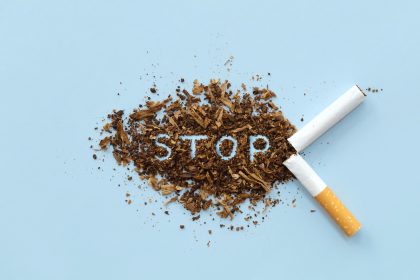Drug addiction is a serious issue affecting millions of people worldwide, and women are not immune to this epidemic. Despite the widespread recognition of the problem, many women go to great lengths to hide their addiction. The stigma surrounding female drug addiction — combined with societal pressures and personal responsibilities — often forces women to conceal their struggles. This article will explore various ways women attempt to hide their drug addiction, the reasons behind these efforts, and the potential consequences of such secrecy.
Understanding the stigma
The stigma associated with drug addiction can be particularly harsh for women. Society often holds women to different standards than men, expecting them to be the caregivers and moral compasses of families. This double standard can lead to heightened feelings of shame and guilt for women who struggle with addiction, pushing them to hide their drug use. The fear of losing custody of children, damaging relationships or facing judgment from peers and community members can be overwhelming.
Methods women use to conceal addiction
- Maintaining appearances
Many women who struggle with addiction go to great lengths to maintain a façade of normalcy. They continue to perform daily responsibilities, such as going to work, taking care of their children and managing household duties. By appearing to have everything under control, they can deflect suspicion from friends, family and coworkers. This often involves meticulous planning and a high level of discipline to ensure that their drug use does not interfere with their public lives.
- Social isolation
Another common tactic is social isolation. Women may withdraw from friends and family to avoid situations where their addiction might be exposed. This can involve missing social gatherings, avoiding phone calls and creating excuses to stay home. By limiting their interactions, they reduce the risk of someone noticing changes in their behavior or physical appearance that could indicate drug use.
- Using prescription drugs
Some women turn to prescription drugs as a way to hide their addiction. By obtaining medications legally, they can maintain the appearance of following a doctor’s orders, even if they are misusing the drugs. This method can be particularly effective because it is harder to detect than illegal drug use. Additionally, the societal acceptance of prescription medication can mask the severity of the addiction.
- Manipulating medical conditions
Women may also use existing medical conditions to justify their drug use. By claiming to need medication for chronic pain, anxiety or other health issues, they can obtain prescriptions and use them without raising suspicion. This manipulation of medical conditions not only provides a cover for their addiction but also makes it easier to access drugs legally.
- Lying and deception
Lying becomes second nature for many women struggling with addiction. They might lie about their whereabouts, the reason for their behavior or the nature of their health problems. Deception can extend to altering financial records, hiding drug paraphernalia and fabricating stories to explain their actions. This constant web of lies can become exhausting but is often seen as necessary to keep their addiction hidden.
- Using disguises and alter egos
In some cases, women may create alter egos or use disguises to purchase drugs without being recognized. This can involve traveling to different areas, changing their appearance and adopting different personas. Such measures are taken to prevent their addiction from being discovered by people they know or by the authorities.
The impact of concealment
The effort to hide drug addiction can take a significant toll on a woman’s mental and physical health. The constant stress of maintaining a double life can lead to anxiety, depression and a sense of isolation. Additionally, hiding addiction often means delaying or avoiding seeking help, which can exacerbate the problem and lead to severe health consequences.
Consequences for relationships and careers
The impact of concealed addiction on personal relationships and careers can be devastating. Trust issues often arise as loved ones may sense something is wrong but cannot pinpoint the cause. Over time, the lies and deception can erode relationships with family, friends and colleagues. In the workplace, addiction can lead to decreased performance, absenteeism and even job loss if the addiction is eventually discovered.
Seeking help and overcoming stigma
Despite the challenges, women can seek help and overcome addiction. Breaking the cycle of concealment starts with acknowledging the problem and reaching out for support. Many organizations offer confidential services specifically designed to help women with addiction. Therapy, support groups and medical treatment can provide the necessary tools to achieve and maintain sobriety.
Support systems
Building a strong support system is crucial for recovery. This can include trusted friends, family members, health care providers and addiction counselors. Open communication and honesty are key components in rebuilding trust and creating a supportive environment. Encouraging women to speak openly about their struggles without fear of judgment can make a significant difference in their recovery journey.
The hidden dangers of concealing drug addiction
Hiding drug addiction is a common but dangerous practice among women. The stigma and societal pressures that drive this behavior only serve to compound the problem, leading to more severe health and social consequences. By understanding the methods women use to conceal their addiction and the reasons behind these efforts, we can better support them in seeking help. Breaking the cycle of secrecy requires compassion, understanding and a commitment to providing the necessary resources for recovery. It’s essential to create a society where women feel safe to seek help and receive the support they need to overcome addiction and lead healthier, more fulfilling lives.
This story was created using AI technology.

















